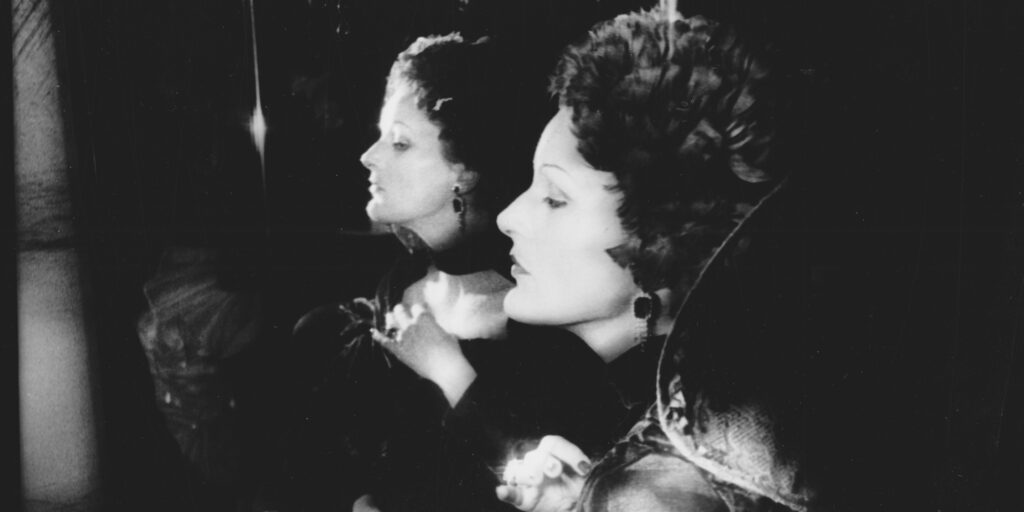ELFI MIKESCH: FILMING IS DEVOTION

Curated by Martin Koerber
In an interview with Peter Körte, Elfi Mikesch stated in 1991: “Filming is always Devotion. I believe that camerawork has only a limited amount to do with power and a lot to do with rhythm and balance. The camera becomes a part of the body during the work. The actors and their movements in space have their own rhythm. I find myself in a state of dance with my subject”.
Born 1940 in Austria and working in Berlin since the 1960s, Elfi Mikesch is one of the most distinguished cinematographers in German cinema. Originally coming from the world of photography, she has worked in the cinema since the early 1970s. Besides shooting her own films, she worked as director of photography on more than 50 films by other directors, among them Werner Schroeter, Rosa von Praunheim, Monika Treut, Friederike Pezold, Heinz Emigholz, Cynthia Beatt and Teresa Villaverde. She has received the Deutscher Kamerapreis three times, including the Honorary Lifetime Achievement Award in 2006. Mikesch’s two dozen directorial works, of which she is usually also the writer/producer, stroll freely between genres. Many of her films are documentaries, but their free form tends to break out into poetic experimentation, and they stand out especially because of the exquisite lighting and camerawork.
In 2000 she told Christoph Hübner: “When we sleep and dream at night, we play. Our soul plays with everything that is not allowed to play during the day. That’s why I do that in my films. I integrate that into my films and start to work playfully with the people I make my films with. I don’t go and leave them alone. We play together. It’s pretty grim sometimes. Sometimes they have difficulties at the beginning; the trust is not there right away, we are not known to each other. That’s where playfulness is the best level to establish that trust mutually… This form of working, this approach to the others, in between us this extremely beautiful instrument of the camera, which helps to capture that, the collaboration with the people who are coupled with it, whether it’s the editing, the sound or also assistants, this whole beautiful working together. I really like that form. I never went to a school where I was told, ‘This is documentary, and this is feature film.’ That’s probably part of my impartiality to both possibilities.”
This programme selects five of her earlier films which exemplify her style of genre-bending filmmaking. Most of these titles were inaccessible for years except in banged-up 16mm prints until Deutsche Kinemathek undertook the restorations.
Martin Koerber
Program
Thursday 29/06/2023
14:30
Cinema Lumiere - Sala Scorsese
ICH DENKE OFT AN HAWAII
ICH DENKE OFT AN HAWAII
Karola Gramann and Heide Schlüpmann
Friday 30/06/2023
14:30
Cinema Lumiere - Sala Scorsese
WAS SOLL’N WIR DENN MACHEN OHNE DEN TOD?
WAS SOLL’N WIR DENN MACHEN OHNE DEN TOD?
Martin Koerber
Saturday 01/07/2023
10:00
Auditorium DAMSLab
Thinking of Hawaii with Elfi Mikesch
Thinking of Hawaii with Elfi Mikesch
Ethical Considerations on working with Filmmakers in Restoration
Saturday 01/07/2023
14:30
Cinema Lumiere - Sala Scorsese
Die blaue distanz / Execution. A Study of Mary
Die blaue distanz / Execution. A Study of Mary
Karola Gramann
Saturday 01/07/2023
16:00
Cinema Lumiere - Sala Scorsese
MACUMBA


